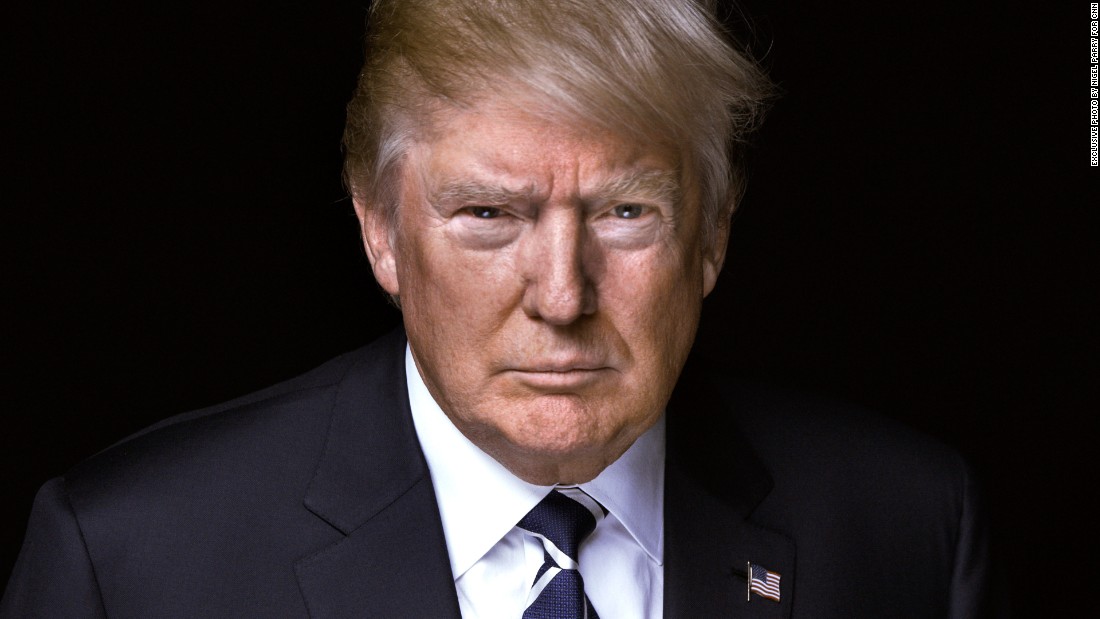
By Glynn Wilson –
One day after President Donald J. Trump went on national television to announce that he would unilaterally withdraw the United States from a deal with Iran negotiated by the Obama administration to prevent that country from developing nuclear weapons, threats to homeland security are already being announced, oil and gas prices are expected to rise and jobs are projected to be lost.
The Department of Homeland Security on Wednesday issued a National Terrorism Advisory System Bulletin warning of a potential terror threat to the U.S. homeland.
“After carefully considering the current threat environment, as well as input from the Department’s intelligence and law enforcement partners, Secretary Nielsen determined it is necessary to extend the NTAS Bulletin at this time,” according to a press advisory issued Wednesday by Secretary of Homeland Security Kirstjen M. Nielsen.
This marks the sixth iteration of the bulletin on the homegrown threat, which has been reissued five times since the first Bulletin was released in December 2015.
“Terrorist groups continue to inspire, enable, and direct their followers to spread chaos using homemade weapons and by striking soft targets and crowded places,” the advisory warns. “They also remain focused on conducting more sophisticated attacks using conventional weapons as well as new technologies and tactics.”
Former President Barack Obama issued a statement on Tuesday calling Trump’s decision “misguided.”
“Walking away from the Joint Comprehensive Plan of Action (JCPOA) turns our back on America’s closest allies, and an agreement that our country’s leading diplomats, scientists, and intelligence professionals negotiated,” the former president said. “In a democracy, there will always be changes in policies and priorities from one Administration to the next. But the consistent flouting of agreements that our country is a party to risks eroding America’s credibility, and puts us at odds with the world’s major powers.”
Jobs
It was also announced that Boeing and Airbus will lose contracts worth roughly $39 billion to replenish Iran’s aging fleet of commercial planes as part of the Trump administration’s reimposition of sanctions.
“The Boeing and Airbus licenses will be revoked,” Treasury Secretary Steven Mnuchin told a group of reporters Tuesday. “The existing licenses will be revoked.”
The aircraft sales were among the most sought-after contracts for Iran, and created jobs in places such as Mobile, Alabama. Those jobs could now be lost.
So far there have been no statements issued by Alabama’s new Democratic Senator Doug Jones, who has been careful not to criticize the president, or Republican Congressman Bradley Byrne of Mobile, who has positioned himself as one of Trump’s biggest supporters.
Airbus signed a deal to supply national carrier Iran Air with 100 airplanes for around $19 billion at list prices in December 2016. It has delivered three planes so far, the first new aircraft acquired by Iran in 23 years, according to the Washington Post and other sources.
Boeing later inked a deal with Iran Air for 80 aircraft with a list price of about $17 billion, promising that deliveries would begin in 2017 and run until 2025.
The company separately struck a 30-airplane deal with Iran’s Aseman Airlines for $3 billion at list prices. No deliveries have been made yet.
“We will consult with the U.S. Government on next steps,” Gordon Johndroe, a Boeing vice president, said in a statement. “As we have throughout this process, we’ll continue to follow the U.S. Government’s lead.”
Analysts said the impact on Boeing would be modest because of a backlog of orders for 737 aircraft, although the company’s stock fell 0.6 percent on Tuesday, closing at $338.37 a share.
Airbus, based in Toulouse, France, with a major plant in Mobile, is subject to U.S. export restrictions because more than 10 percent of its jet parts originate with U.S. companies such as United Technologies, Rockwell Collins and General Electric.
Mnuchin also said the Trump administration would cancel waivers that allowed the sale of commercial aircraft parts and services.
“These sanctions do impact all of the major industries,” Mnuchin said. “These are very, very strong sanctions; they worked last time. That’s why Iran came to the table.”
He said there might be some exclusions, but he did not elaborate.
The administration said it was giving most international companies 90-day and 180-day “wind-down periods” to exit contracts and ventures in Iran.
Oil and Gas Prices
The sanctions on oil purchases will be the same as those imposed by the Obama administration. The State Department will allow purchases by other countries if they show that they are making “significant reductions” over a 180-day period. Under Obama, and with the cooperation of five major economic powers, Iran’s oil exports fell by more than 1 million barrels a day.
The new sanctions will most likely have less of an effect. Since the Obama nuclear deal was signed, the market was open for the Islamic Republic sell about 700,000 barrels a day in Asia to China and India. It’s unclear how much those nations will comply with Trump’s unilateral withdrawal.
Mnuchin said U.S. officials have had discussions with other countries about increasing production to offset the loss of oil from Iran. He did not say which countries, although Saudi Arabia has the greatest spare production capacity.
Market experts are expecting oil and gas prices to rise as a result of the deal cancelation and halting imports of Iranian oil to the U.S.
Global oil supplies were already getting tight before Trump vowed on Tuesday to exit the Iran nuclear deal and impose “powerful” sanctions on the OPEC nation, according to CNN and other sources. Crude topped $70 a barrel this week for the first time in nearly four years.
“Withdrawing from the Iran nuclear deal will support higher oil prices,” Dan Eberhart, CEO of oilfield services company Canary LLC, told CNN.
Former President Obama said in his statement on Facebook that the decision was a “serious mistake.”
“Without the JCPOA, the United States could eventually be left with a losing choice between a nuclear-armed Iran or another war in the Middle East,” Obama said. “We all know the dangers of Iran obtaining a nuclear weapon. It could embolden an already dangerous regime; threaten our friends with destruction; pose unacceptable dangers to America’s own security; and trigger an arms race in the world’s most dangerous region. If the constraints on Iran’s nuclear program under the JCPOA are lost, we could be hastening the day when we are faced with the choice between living with that threat, or going to war to prevent it.”
Terror Threat
According to the threat bulletin, the Department of Homeland Security, a new federal agency formed during the administration of George W. Bush after the attacks on September 11, 2001, America now faces “one of the most challenging threat environments since 9/11, as foreign terrorist organizations exploit the Internet to inspire, enable, or direct individuals already here in the homeland to commit terrorist acts.”
“Homegrown terror suspects increasingly rely on technology, such as end-to-end encrypted social media applications, to avoid detection,” the advisory warns. “Terrorist groups are urging recruits to adopt easy-to-use tools to target public places and events. Specific attack tactics have included the use of vehicle ramming, small arms, straight-edged blades or knives, homemade explosives, and poisons or toxins.”
Some terrorist groups overseas are using battlefield experiences to pursue new technologies and tactics, such as unmanned aerial systems and chemical agents that could be used outside the conflict zones. Additionally, terrorists continue to target commercial aviation and air cargo, including with concealed explosives, the advisory continues.
“Violent extremist media encourages individuals worldwide to launch attacks using all means possible. Continued U.S. and partner successes in disrupting and defeating terrorists on the battlefield may encourage homegrown terrorists to carry out acts of violence in the homeland instead of attempting to travel overseas to fight or in retaliation for apparent losses.”
Additionally, foreign terrorist fighters who have acquired training and battle-tested terrorism experience may flee from terrorist-controlled territories with a desire to conduct attacks elsewhere, including the domestic United States.
—
Watch the full C-SPAN video of Trump’s statement here.













